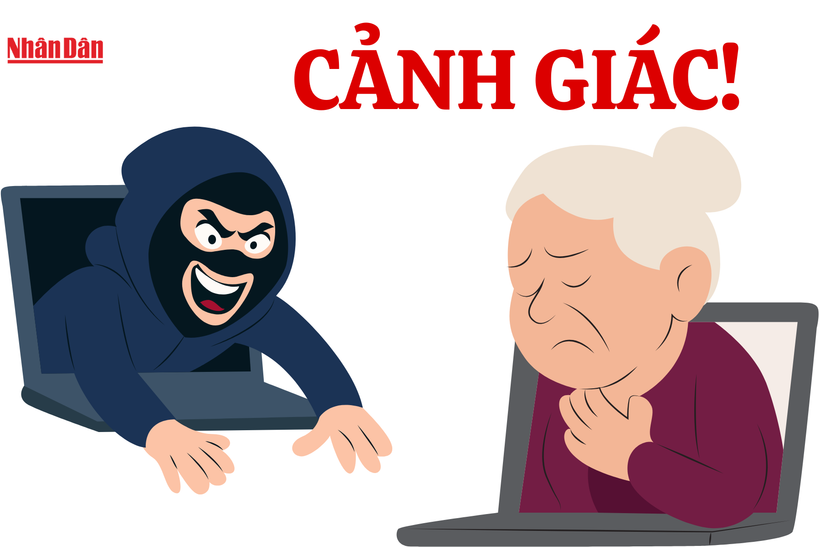
It is not difficult to find on social networks disguised forms of online lending, disguised as "study loan", "student loan", "tuition loan" applications... to reach students. This is a new trick of "black credit" lines in the technology era, quietly infiltrating the school environment, causing many serious consequences.
Under the guise of "fast loan support - simple procedures - no mortgage required", online loan apps are widely advertised on social networks, especially Facebook, TikTok, Zalo, Telegram...
With an eye-catching interface, friendly language and the introduction of "tuition loans, easy installment payments", the subjects directly target the psychology of young people - those who have the need to spend, shop or pay tuition but lack financial and legal knowledge.
With just a few steps of registration, uploading a photo of your ID, providing your phone number and bank account, borrowers can “receive money immediately” in a few minutes. However, behind that professional appearance is a series of tricks of loan sharking and threats, forcing debt repayment.
Actual interest rates can be up to hundreds of percent per year, along with countless "hidden fees" such as processing fees, service fees, late fees... causing borrowers to quickly fall into a spiral of debt with no way out.
Tran M. is currently a student at a top university in Hanoi . Because he needed money to cover personal needs, he chose to borrow money from black credit advertised on a social networking site.
With the thought of saving the monthly allowance from her family to pay off the debt. However, the truth is not as easy as M. thought.
According to M, he only needed to photocopy his ID card and household registration book and send it to the creditor, and M. would receive the loan in less than 2 hours. Although the loan amount was 10 million VND, M. only received 8 million VND and had to pay 200,000 VND per day for 50 days. And every incident completely changed M.'s life from the moment he received 8 million VND from the creditor.
The threatening and abusive phone calls from creditors when M. was late in paying for several days continuously, regardless of the time, made M. worried and scared. Until she felt there was no solution, M. proactively shared with her family about her mistake and found a solution.
Police said that black credit groups are now using high technology and hiding under the guise of online lending businesses and lending via apps. These apps often change their names or hide information to avoid being monitored by authorities.
The apps often solicit loans and collect personal information from borrowers. Although the contractual interest rate is only 20%/year, borrowers have to pay many additional fees, making the actual interest rate up to tens of percent per month.
When the loan expires, customers are forced to transfer money to the bank accounts of these companies. This creates bad debt, forcing borrowers to repay the debt at exorbitant interest rates.
More worryingly, some applications also require users to grant access to contacts, photos, and locations on their phones. This is a tool for the subjects to control the victims when disputes arise.
Faced with the above situation, the police agency recommends that people be careful with online loan forms to avoid unfortunate consequences.
When in need of a loan, people are advised to seek out reputable credit institutions to learn and receive guidance and support in completing loan procedures appropriate to their financial capabilities; absolutely do not make a money transfer transaction to anyone for any reason without verifying exactly who they are and for what purpose.
In case of suspicion of fraud or property appropriation, it is necessary to immediately report to the nearest police agency for timely support and handling.
Source: https://nhandan.vn/canh-giac-voi-hanh-vi-lua-dao-tu-cac-ung-dung-vay-tien-online-post925959.html





































































































Comment (0)